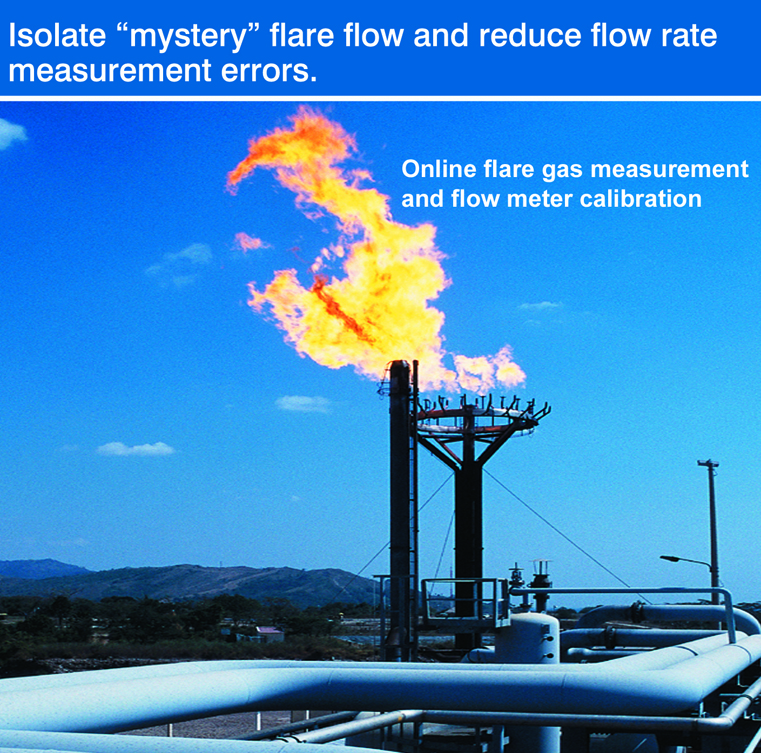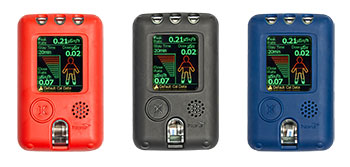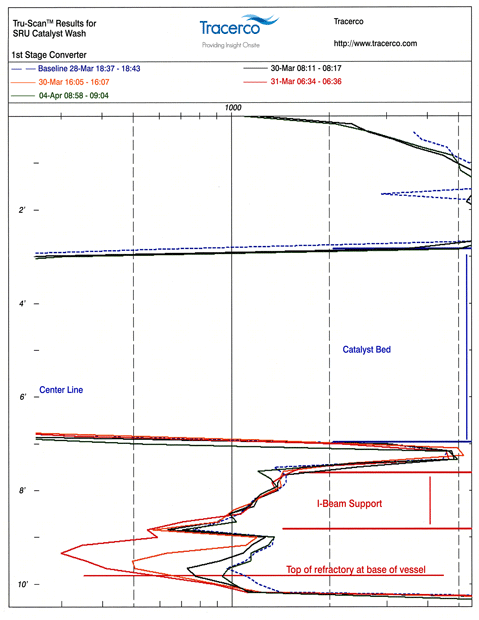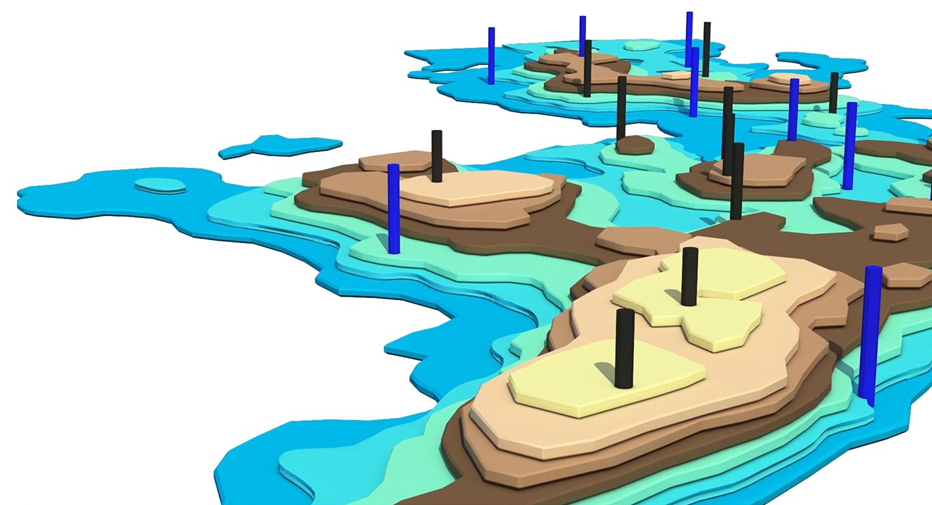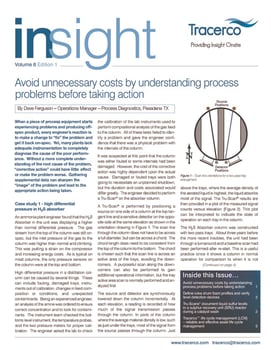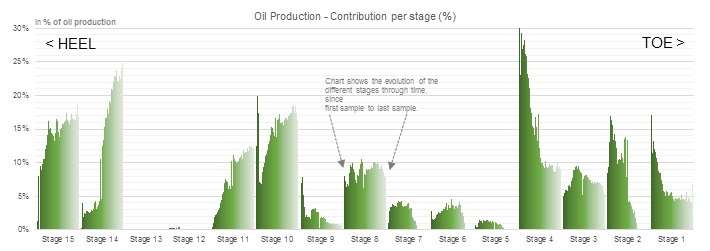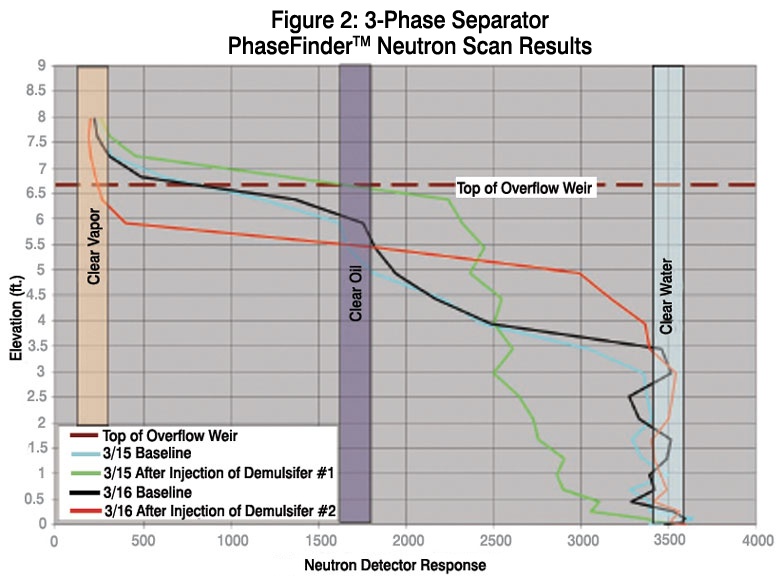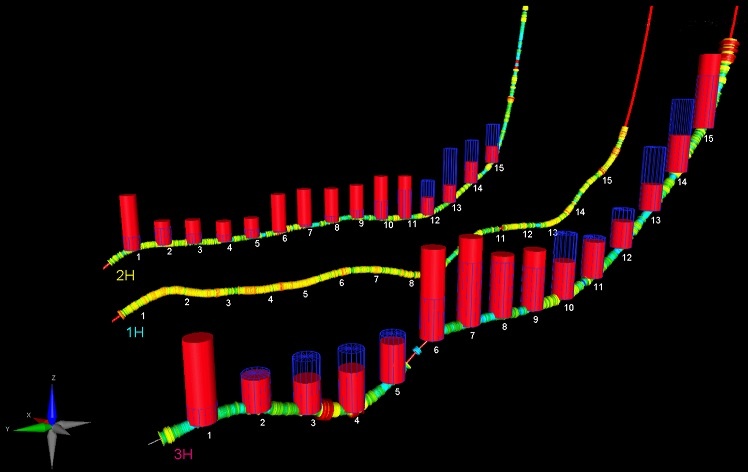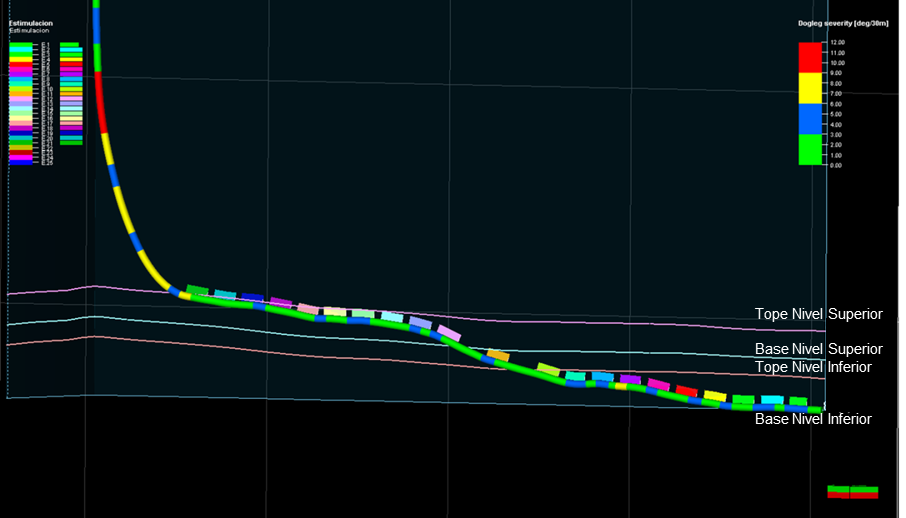Tracerco Diagnostics™ Flow study and meter proving services
Determine the Volume and Value of Material Lost To The Flare
Flare flow measurement is a crucial activity in chemical plants and refineries with loss of process material to the flare costing millions of dollars each year in profits and environmental costs. Tracerco Diagnostics™ Flow studies performed through sections of the flare piping system detect and isolate sources of fugitive flow. Once it is determined which unit(s) are contributing to the flare flow, each valve can be individually tested to determine which is leaking.
This blog will cover a customer case study illustrating how our Tracerco Diagnostics™ Flow studies played a key role in their predictive maintenance and process optimisation and a link to our Tracerco newsletter featuring two additional case studies on our flow study and meter proving services.
Read More
Topics:
flare gas flow meter,
flare study,
flare system tracers,
flare gas flow measurement,
excessive flare flow,
fugitive flare flow,
Tracer Study
The International Atomic Energy Agency’s (IAEA) Specific Safety Guide No. SSG-11 which relates to Radiation Safety in Industrial Radiography states that radiography companies must ensure that employees (Category A Workers and potentially others who enter controlled areas) are subject to regular dose assessments in order to ensure that radiation doses are kept as low as reasonably achievable and dose limits are not exceeded. It is essential that reliable dose information is collected to ensure that the exposure of workers is properly controlled. Furthermore, dose assessments will also serve to highlight bad (and good) working practices. To meet this requirement, the employer will engage an Approved Dosimetry Service (ADS) so that they may provide suitable personal dosimeters together with a formal dose record keeping service.
Read More
Topics:
ped,
personal electronic dosimeter,
radiation monitor,
radiation safety,
Radiation Protection,
Radiation Protection Adviser,
EPD,
electronic personal dosimeter,
radiography,
personal dosimetry
Are you planning to “wash” a catalyst bed in a reactor and need to monitor process conditions?
Using Tru-Scan™ technology to detect liquid levels in pressure vessels and catalyst levels in reactors is a fast and extremely reliable measurement performed online. One of the problems operations staff faced when planning a catalyst “wash” was not having an indication of any accumulated liquid level in the bottom of the vessel to monitor the procedure. Read more on how Tracerco was able to assist a customer with monitoring the liquid level throughout their planned wash campaign.
Read More
Topics:
Tru-Scan,
gamma scan,
liquid restriction,
SRU Unit,
coke,
Sulphur Recovery Unit,
catalyst bed wash
In this blog post we will highlight and discuss, the top five questions we are asked about a Tracerco™ Interwell Study.
Read More
Topics:
chemical tracers,
reservoir,
reservoir analysis,
interwell,
reservoir characterisation,
tracers,
smart tracers,
tracer technology,
well development
The first issue of 2018's Tracerco Insight newsletter is now available.
Tracerco would like to wish you a Happy New Year. We are very much looking forward to celebrating our 60th anniversary in 2018.
To start the new year we have published the first issue of the Tracerco Insight newsletter featuring a few of our latest case studies illustrating how Tracerco was able to provide our customers the necessary data that allowed the operations staff to make informed decisions for troubleshooting and optimising their process.
Read More
Topics:
nucleonic instrumentation,
Tru-Scan,
gamma scan,
coke drum cycle,
coke drum optimization,
delayed coke drum,
feed/effluent heat exchangers,
tracer technology,
H2S Absorber,
Life cycle management,
Tracer Study,
SRU Unit,
coke,
Sulphur Recovery Unit,
catalyst bed wash,
Ammonia converter
Selection of the stimulation target in unconventional shale formations is an important factor that impacts well productivity. In thick unconventional formations, it is essential that operators quantify the production of each stage of hydraulic fracturing executed in the well, in order to establish the most productive rock. It is also important for operators to be certain that every section of the stimulated well is effectively contributing to overall well production and clean-out of all stages has been achieved. In addition, other development challenges include optimal spacing between perforation clusters, stages and wells, allowing operators to optimize drilling and completion costs and maximize enhanced ultimate recovery (EUR).
This Blog describes the application of chemical tracers in a multi-stage horizontal well to gain insight on stage productivity in order to plan an optimal field development strategy.
Read More
Topics:
chemical tracers,
unconventional wells,
reservoir,
fracking,
reservoir characterisation,
tracers,
unconventional oil and gas,
smart tracers,
tracer technology,
frac wells,
shale,
shale production,
well development
Scans aid plant personnel in determining which demulsifier is best suited for their application.
Tracerco’s scanning technology is an excellent means of measuring interface levels, whether between vapour and liquids, liquid and solids, or between two different types of liquids. Tru-Scan™ and PhaseFinder™ neutron scanning technologies can be used very effectively in trials of emulsion breaking chemicals to determine the best type and concentration to use in a particular vessel. This can lead to increased efficiency and significant cost savings as well as reduce the environmental impact of excess chemical use.
This blog will present two demulsifier trials that will show the difference in performance base on the presence or absence of an emulsion layer.
Read More
Topics:
neutron backscatter,
Tru-Scan,
gamma scan,
Separator,
PhaseFinder,
Demulsifier Chemical,
interface levels
Tracerco, patented, pioneered and continues to enhance technology that enables the measurement of individual gas, oil, and water stage production along the length of a wellbore, without well intervention. This inexpensive technology provides confirmation that a wellbore is open to flow, identifies and quantifies stage flow contribution of each phase, and provides measurement of drainage area connectivity - simply by adding small amounts of unique chemical tracers to each stage’s stimulation fluid.
Read More
Topics:
chemical tracers,
unconventional wells,
reservoir,
fracking,
reservoir characterisation,
tracers,
unconventional oil and gas,
smart tracers,
tracer technology,
frac wells,
shale,
shale production,
well development
A customer wanted to test two different lithologies and compare the performance of both, in the gas window of the Neuquén Basin, in Argentina. For that reason, a slanted two-horizon target well was drilled, distributing 10 stages in the upper zone, and 10 stages in the lower zone. The intermediate zone, which was not considered a main target, received one stage.
21 unique organic gas and water tracers were added to each of the different stages of the well during stimulation. The injection was controlled and care was taken to tag all stages in the same way, ensuring that the tracers would penetrate deep into the fracture structure and make contact with formation hydrocarbons. Subsequent flowback and sample analysis for the presence of the injected tracers allowed relative gas and water flow from the different stages to be evaluated.
Read More
Topics:
chemical tracers,
unconventional wells,
reservoir,
fracking,
reservoir characterisation,
tracers,
unconventional oil and gas,
smart tracers,
tracer technology,
frac wells
Tru-Scan™ results assist with diagnosing problems even in a challenging process such as liquid-liquid extractors.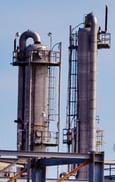
One category of special applications is liquid-liquid extractors. Besides the fact that liquid-liquid extractors are not “typical” distillation or fractionation unit operations, what makes them a special application for Tru-Scans™? The source and detector system that is used in scanning measures density changes of the process materials inside the tower. With a typical fractionation tower there is a large density difference between the vapour and liquid phases. Thus there is a large density range between clear vapour and clear liquid to detect process or operating conditions existing in a typical fractionation tower – entrainment, foaming, flooding, internal damage, etc. But liquid-liquid extractors are liquid full, with no large vapour-liquid density difference. Meaningful scan results from a liquid-liquid tower rely on the density difference between the two liquid phases being significant enough to distinguish as some extraction processes involve two liquids that have comparable densities.
So what will a Tracerco Tru-Scan™ of a liquid-liquid extractor tower show?
Since we do not have the large vapour-liquid density difference to work with, the information learned from a scan of a liquid-liquid extractor is less extensive than for a “typical” fractionation tower but not any less important. As the following examples show, scans of liquid-liquid extractors can detect problems when the two liquid phases are not properly mixing, preventing the tower from doing its proper extraction operation.
Read More
Topics:
gamma scan,
liquid liquid extractor,
extraction tower,
trayed extraction tower,
liquid restriction
